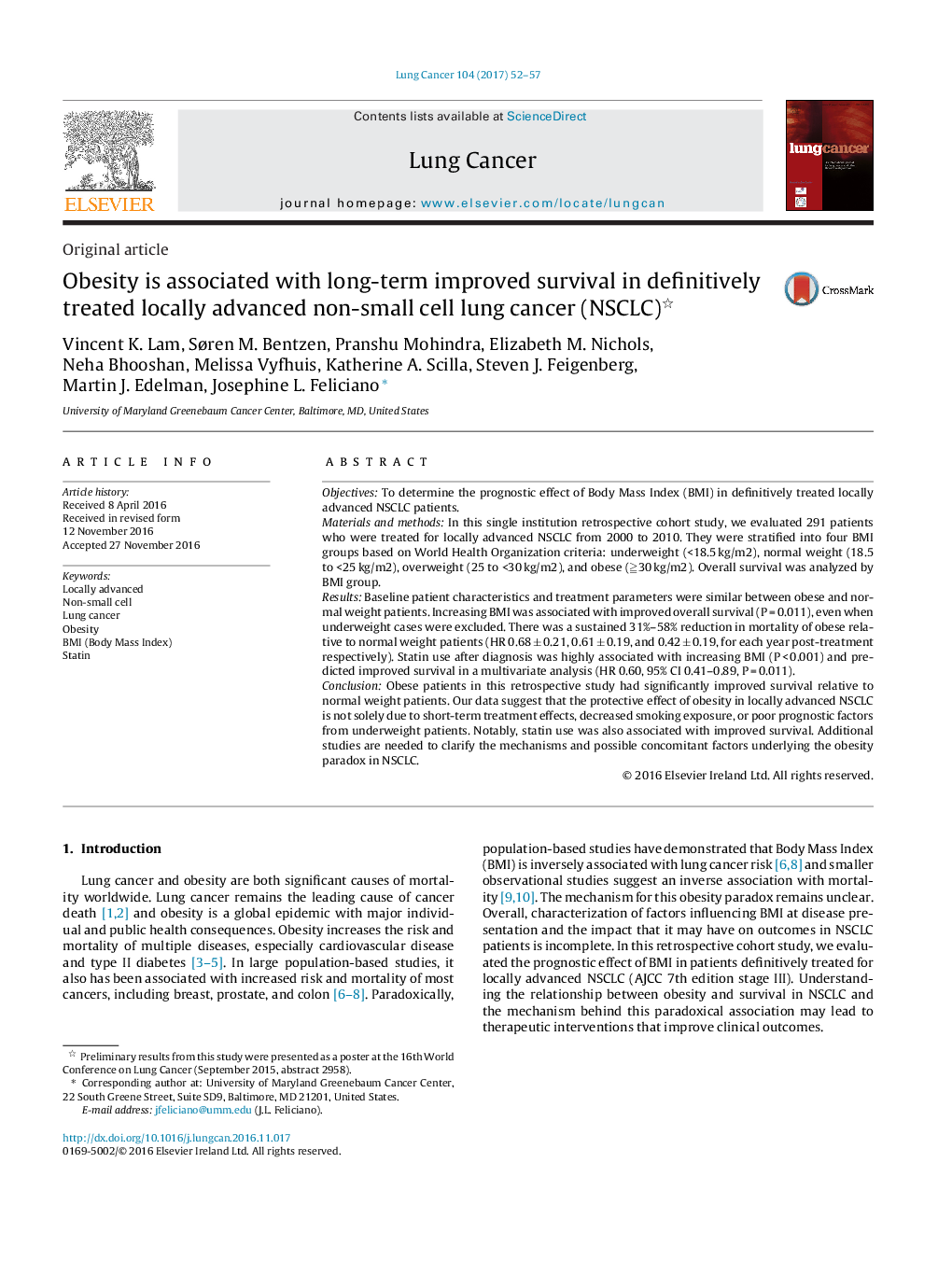| کد مقاله | کد نشریه | سال انتشار | مقاله انگلیسی | نسخه تمام متن |
|---|---|---|---|---|
| 5528406 | 1547963 | 2017 | 6 صفحه PDF | دانلود رایگان |

- Obese patients have better overall survival than normal weight patients.
- This is not solely due to decreased smoking exposure or underweight status.
- Statin use represents a potential confounder in this obesity paradox.
ObjectivesTo determine the prognostic effect of Body Mass Index (BMI) in definitively treated locally advanced NSCLC patients.Materials and methodsIn this single institution retrospective cohort study, we evaluated 291 patients who were treated for locally advanced NSCLC from 2000 to 2010. They were stratified into four BMI groups based on World Health Organization criteria: underweight (<18.5 kg/m2), normal weight (18.5 to <25 kg/m2), overweight (25 to <30 kg/m2), and obese (â§30 kg/m2). Overall survival was analyzed by BMI group.ResultsBaseline patient characteristics and treatment parameters were similar between obese and normal weight patients. Increasing BMI was associated with improved overall survival (P = 0.011), even when underweight cases were excluded. There was a sustained 31%-58% reduction in mortality of obese relative to normal weight patients (HR 0.68 ± 0.21, 0.61 ± 0.19, and 0.42 ± 0.19, for each year post-treatment respectively). Statin use after diagnosis was highly associated with increasing BMI (P < 0.001) and predicted improved survival in a multivariate analysis (HR 0.60, 95% CI 0.41-0.89, P = 0.011).ConclusionObese patients in this retrospective study had significantly improved survival relative to normal weight patients. Our data suggest that the protective effect of obesity in locally advanced NSCLC is not solely due to short-term treatment effects, decreased smoking exposure, or poor prognostic factors from underweight patients. Notably, statin use was also associated with improved survival. Additional studies are needed to clarify the mechanisms and possible concomitant factors underlying the obesity paradox in NSCLC.
Journal: Lung Cancer - Volume 104, February 2017, Pages 52-57